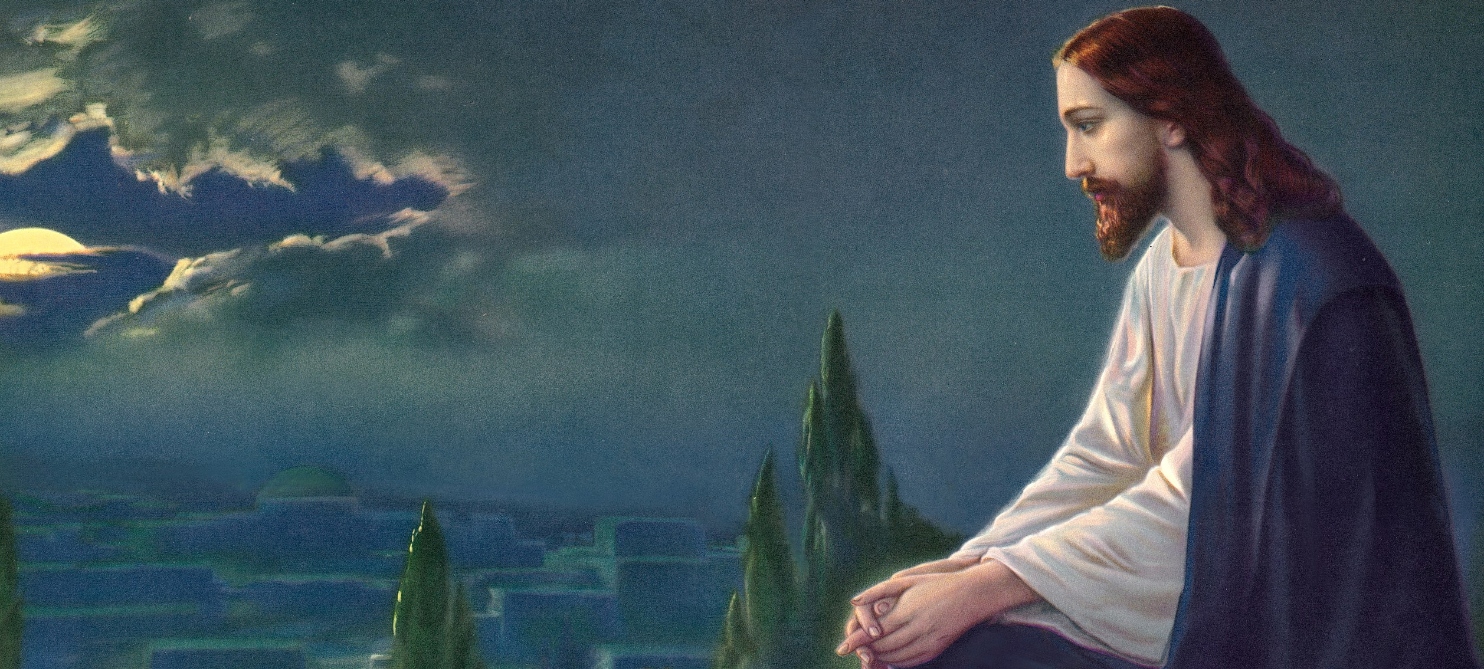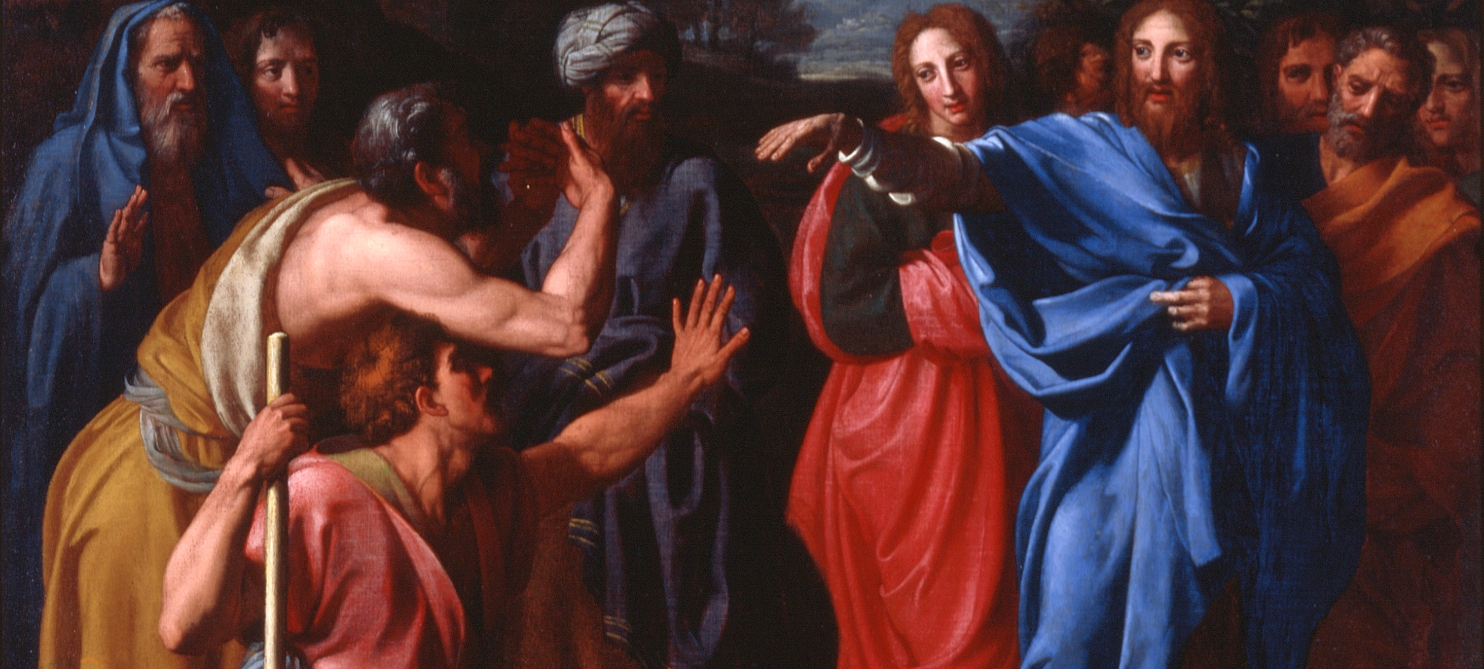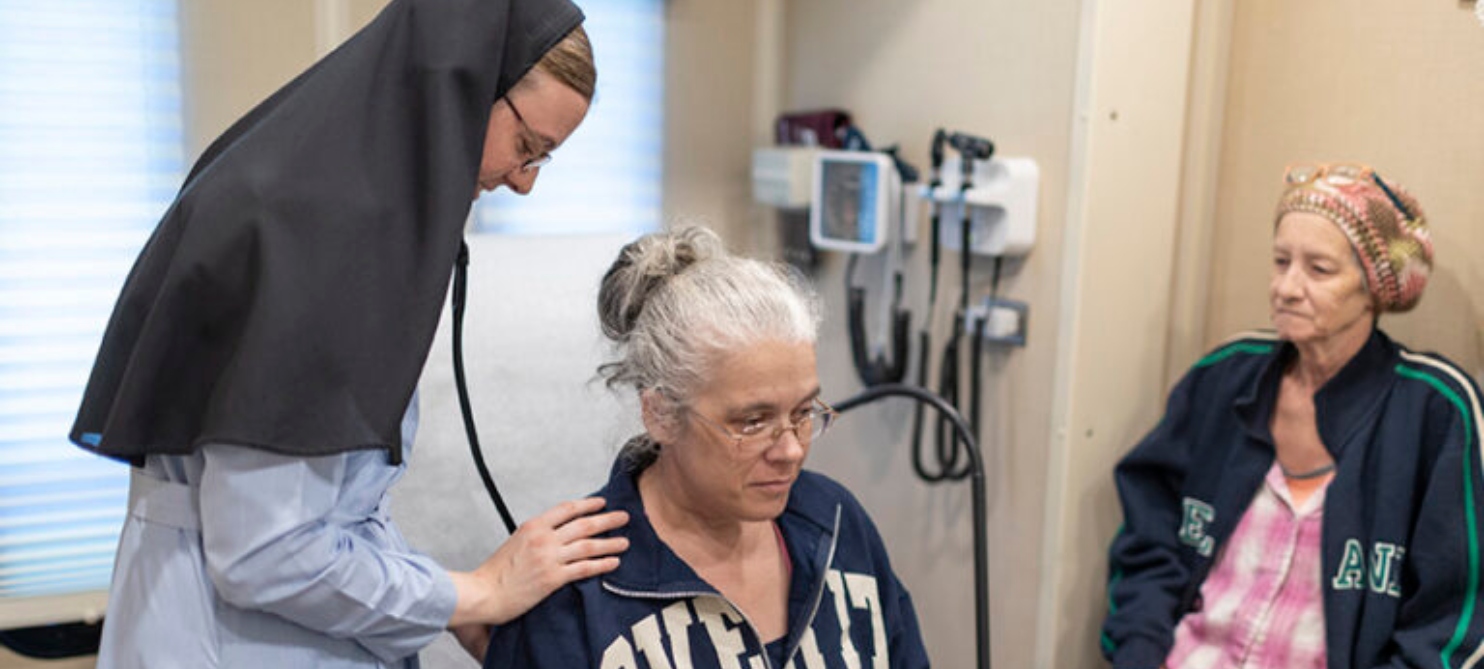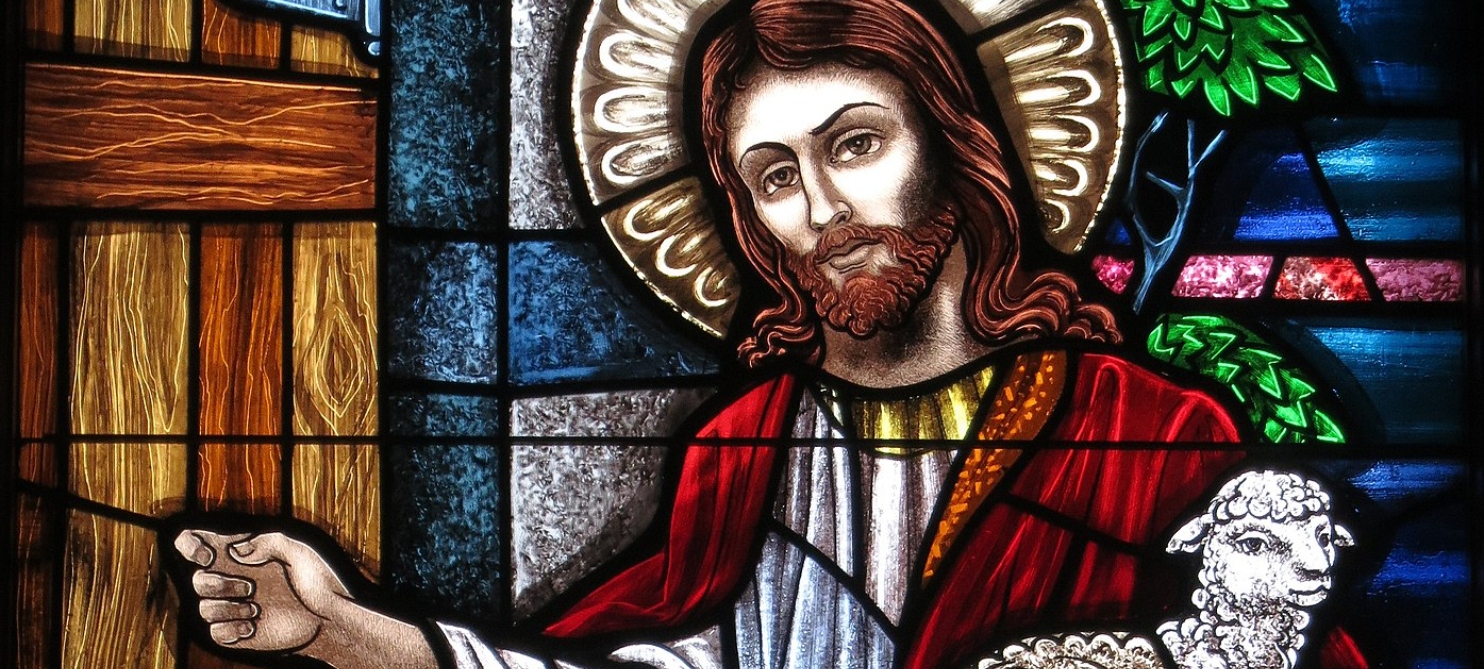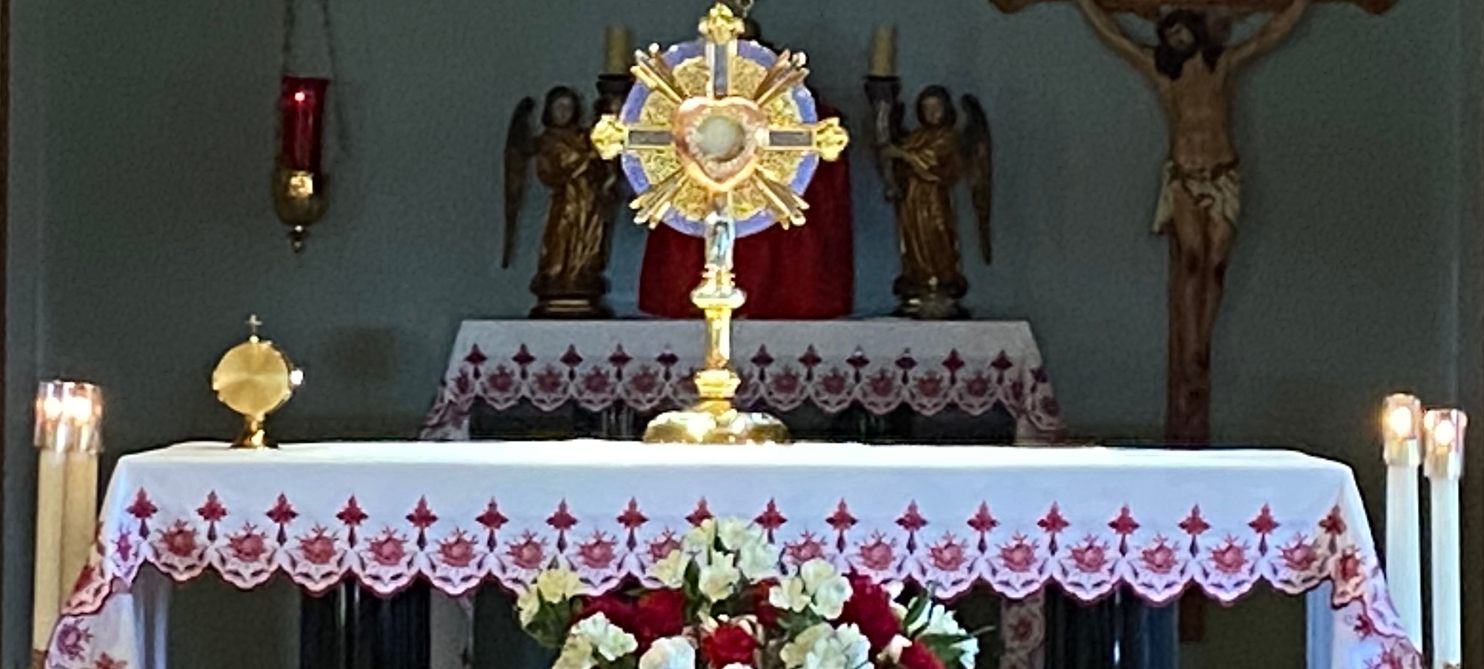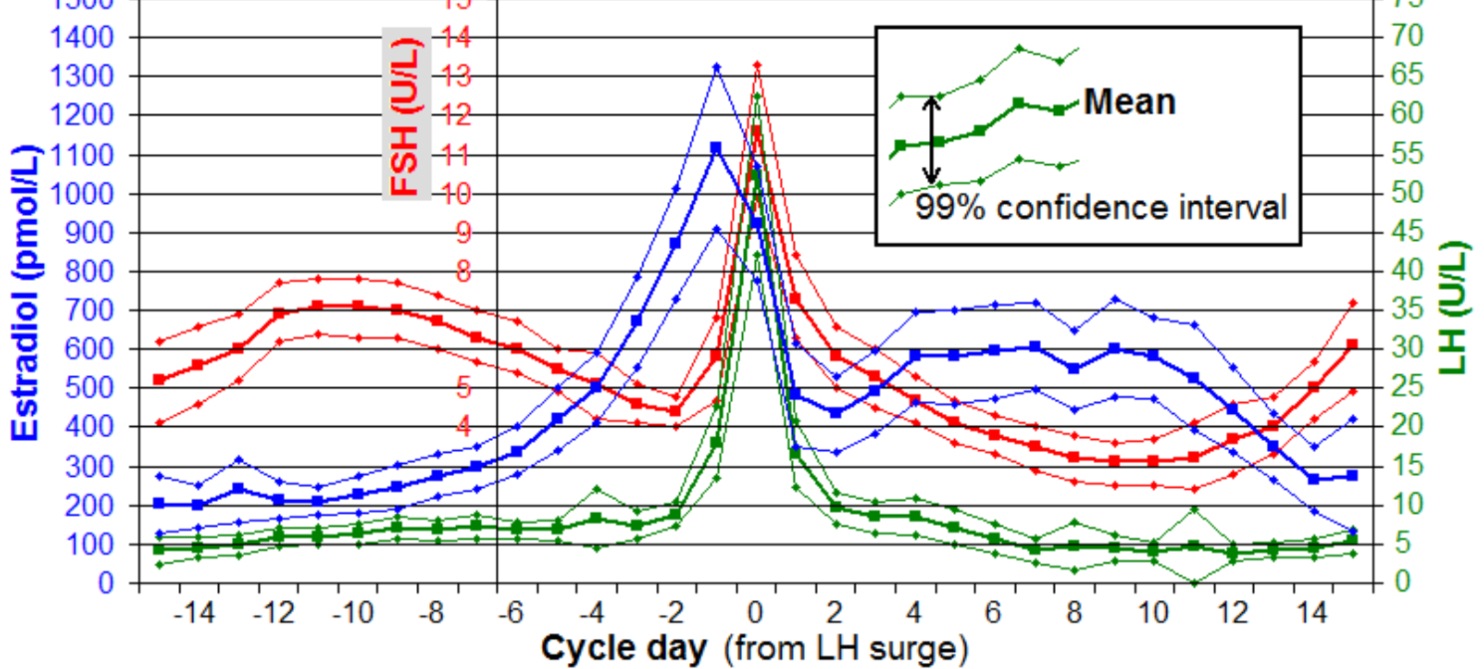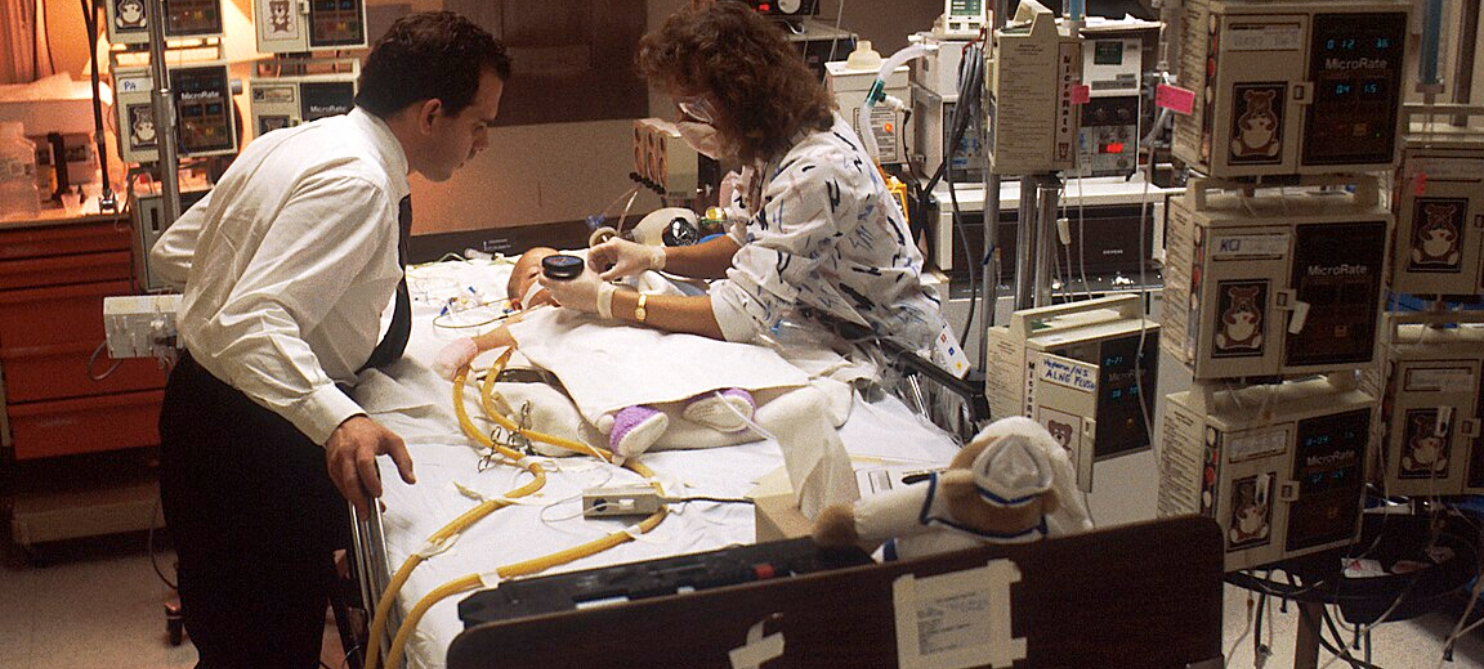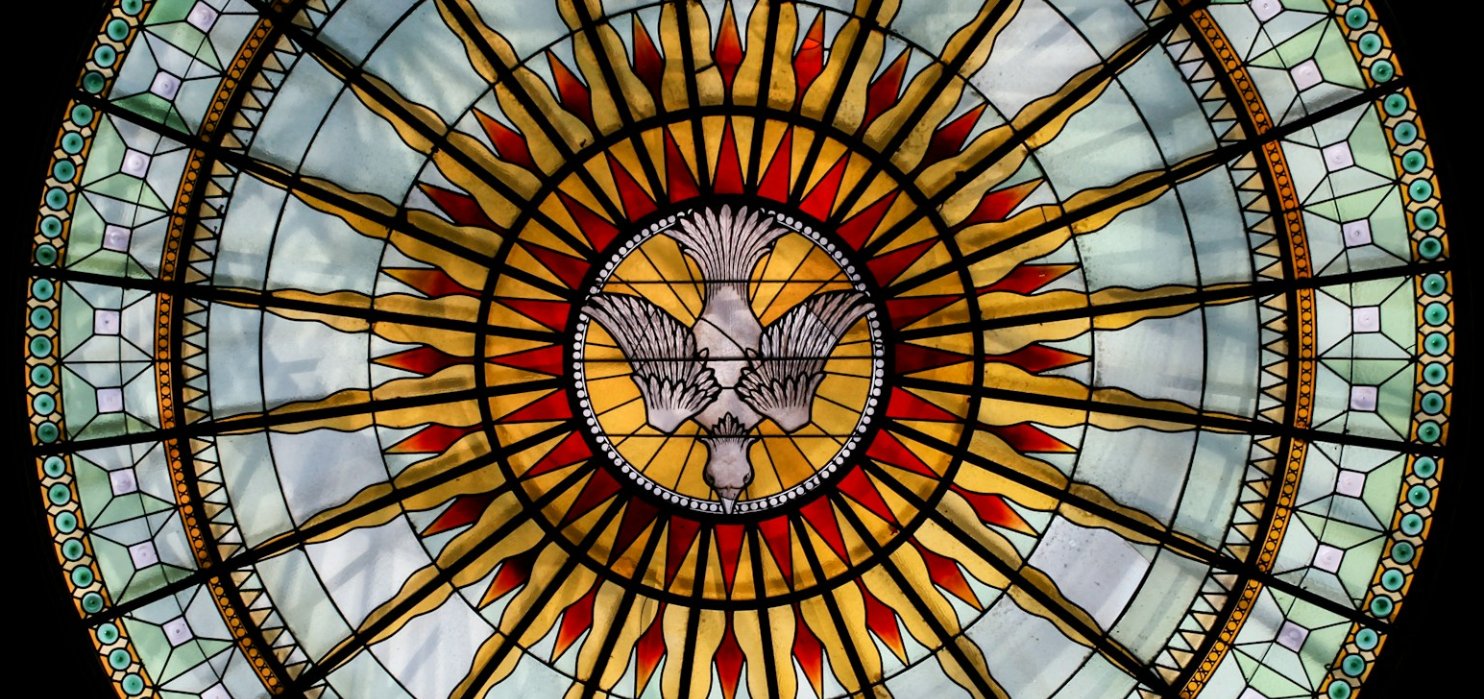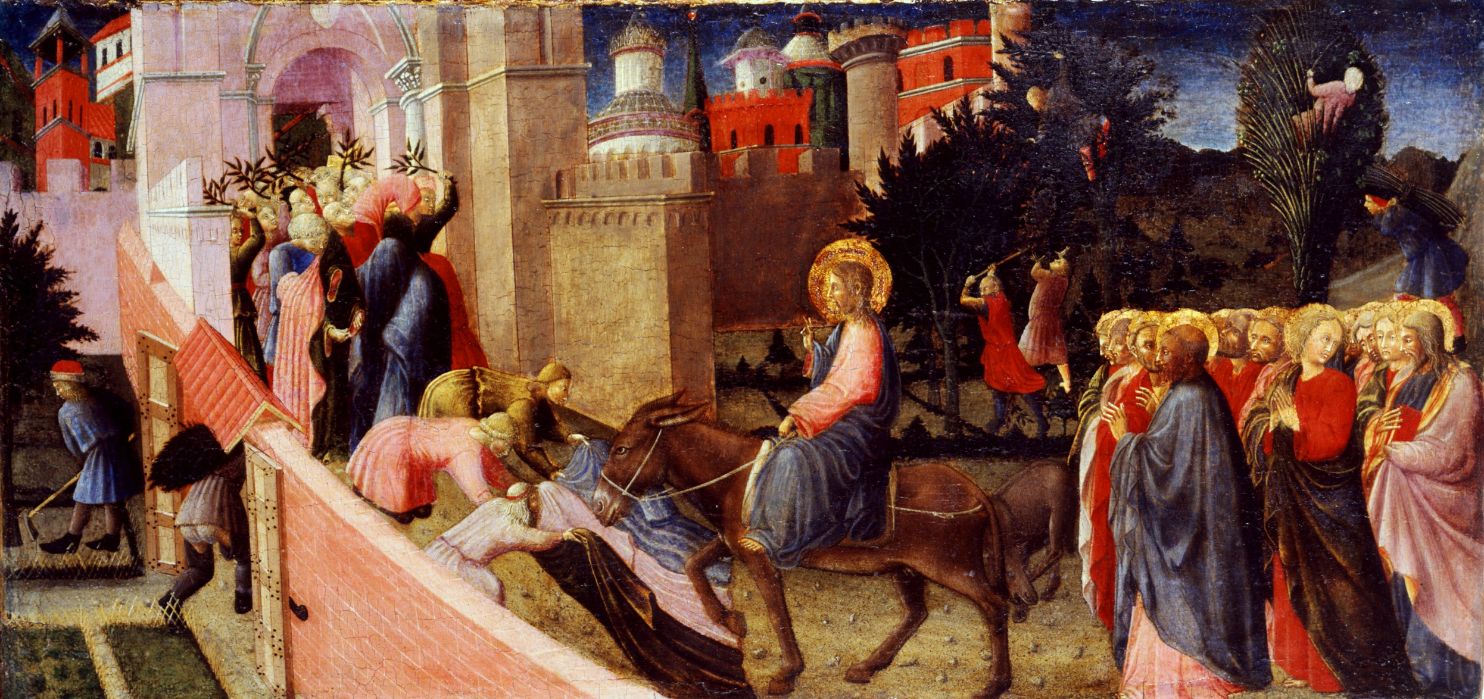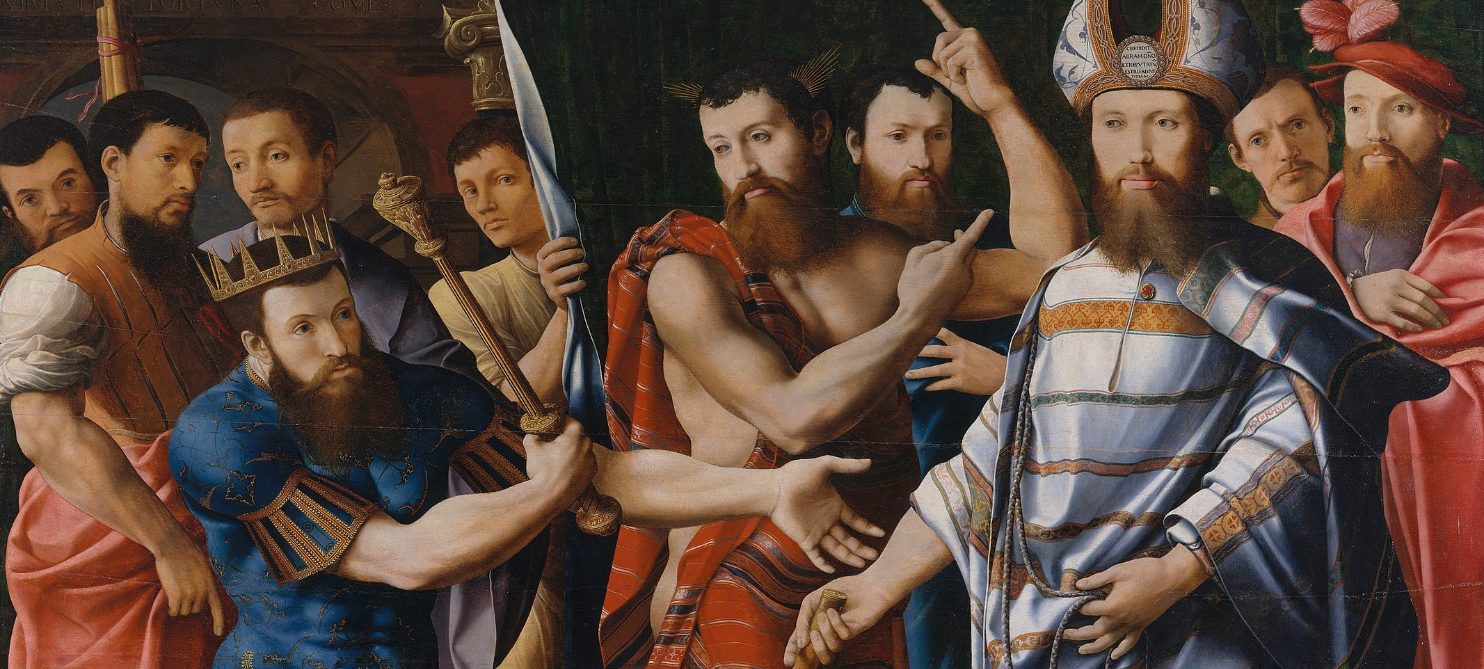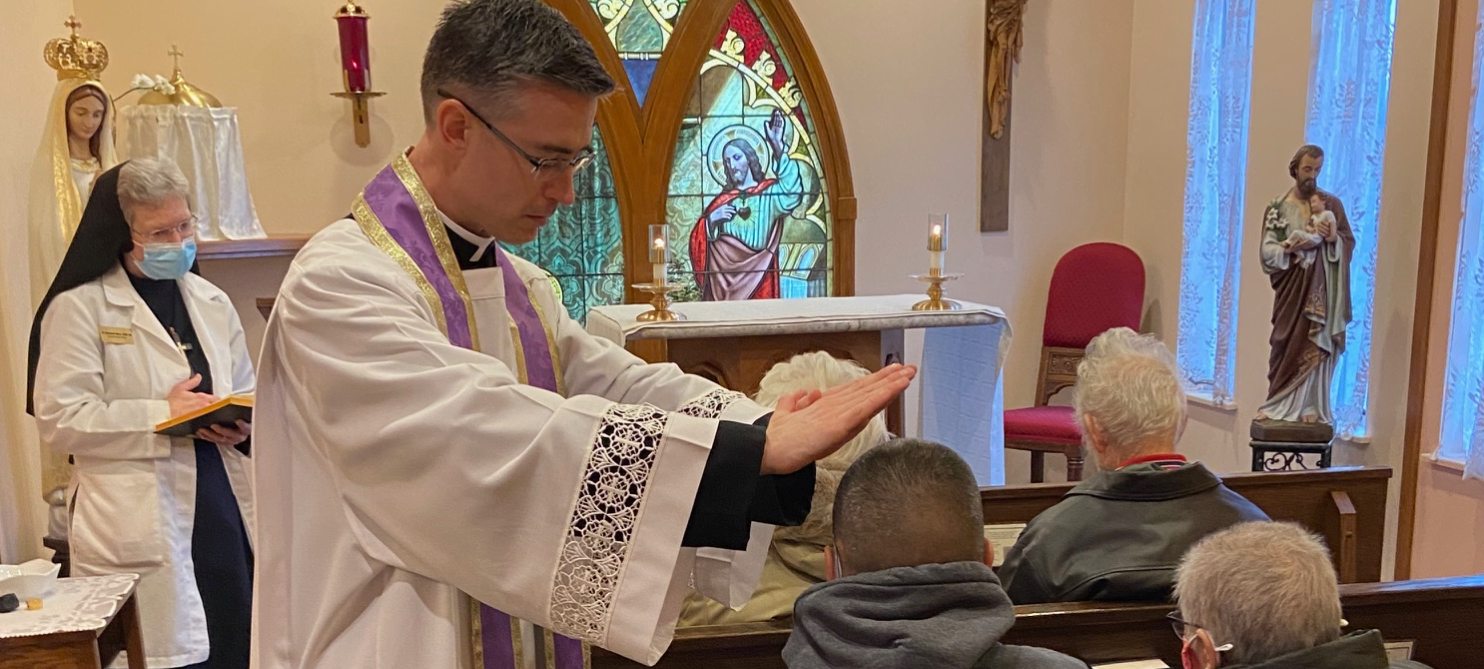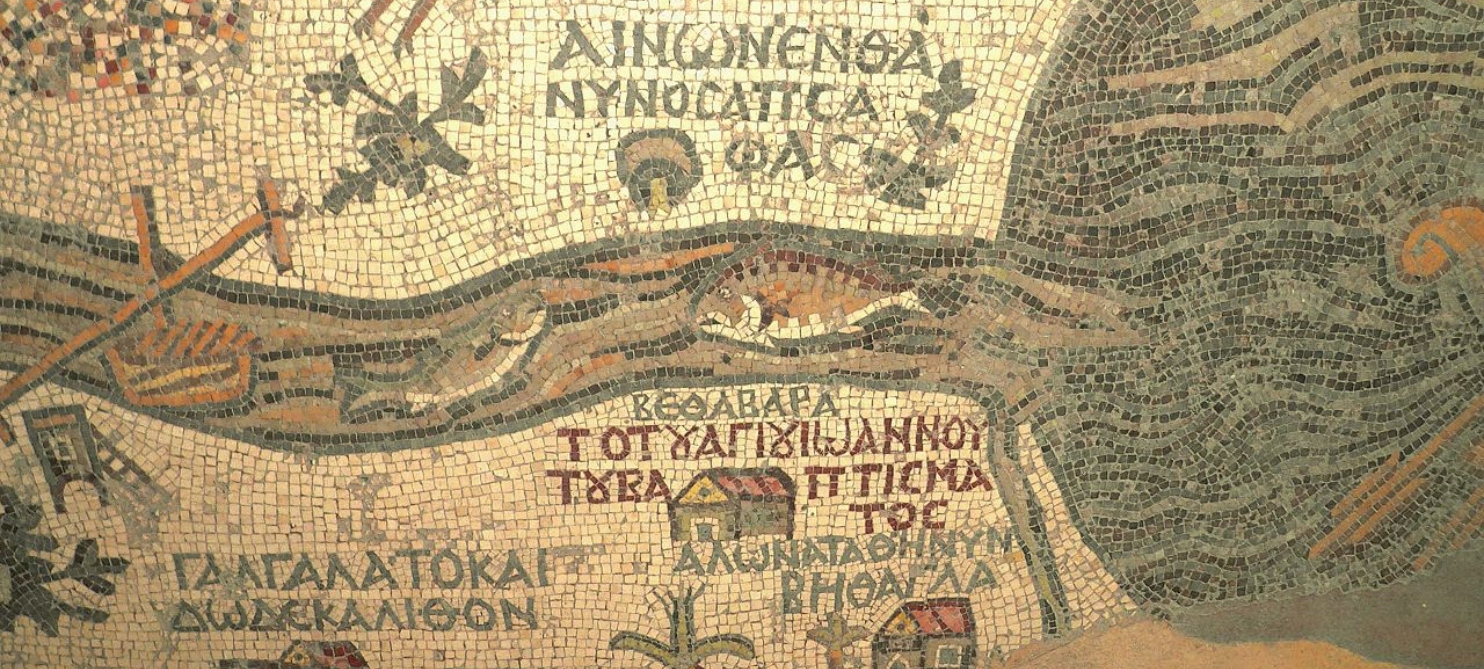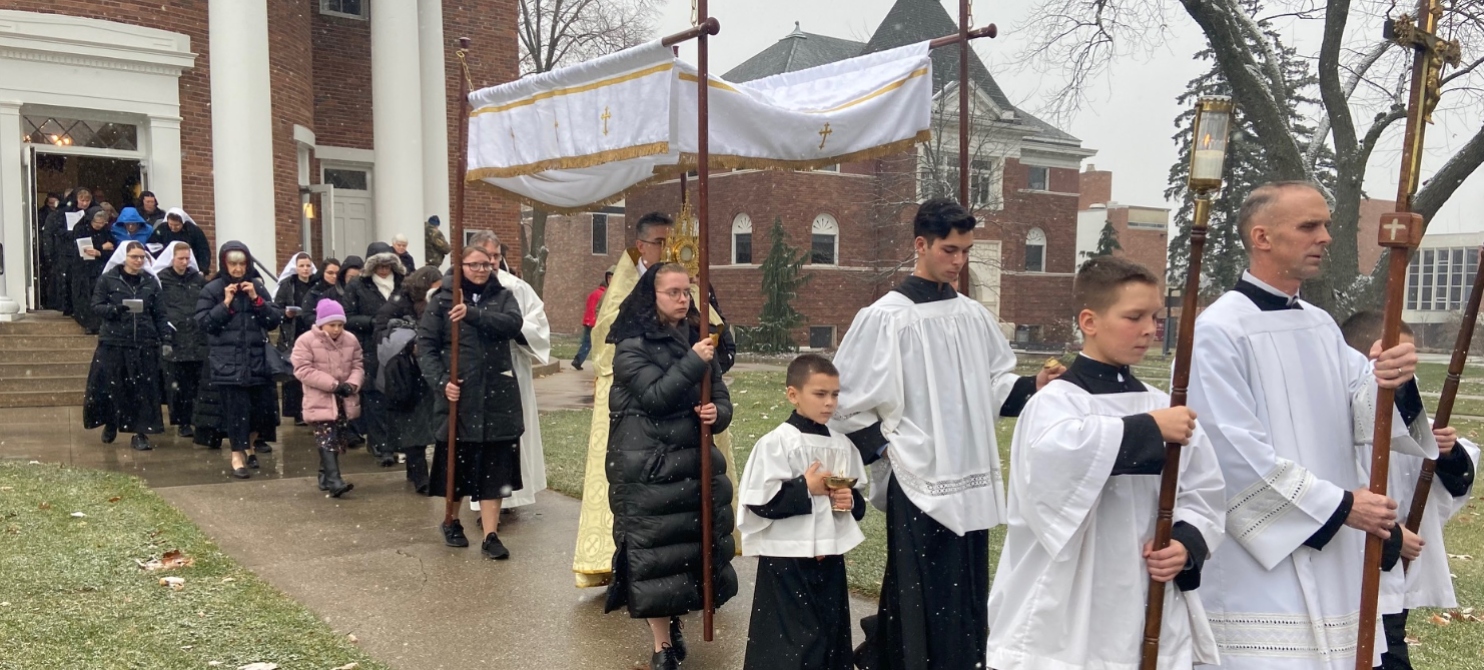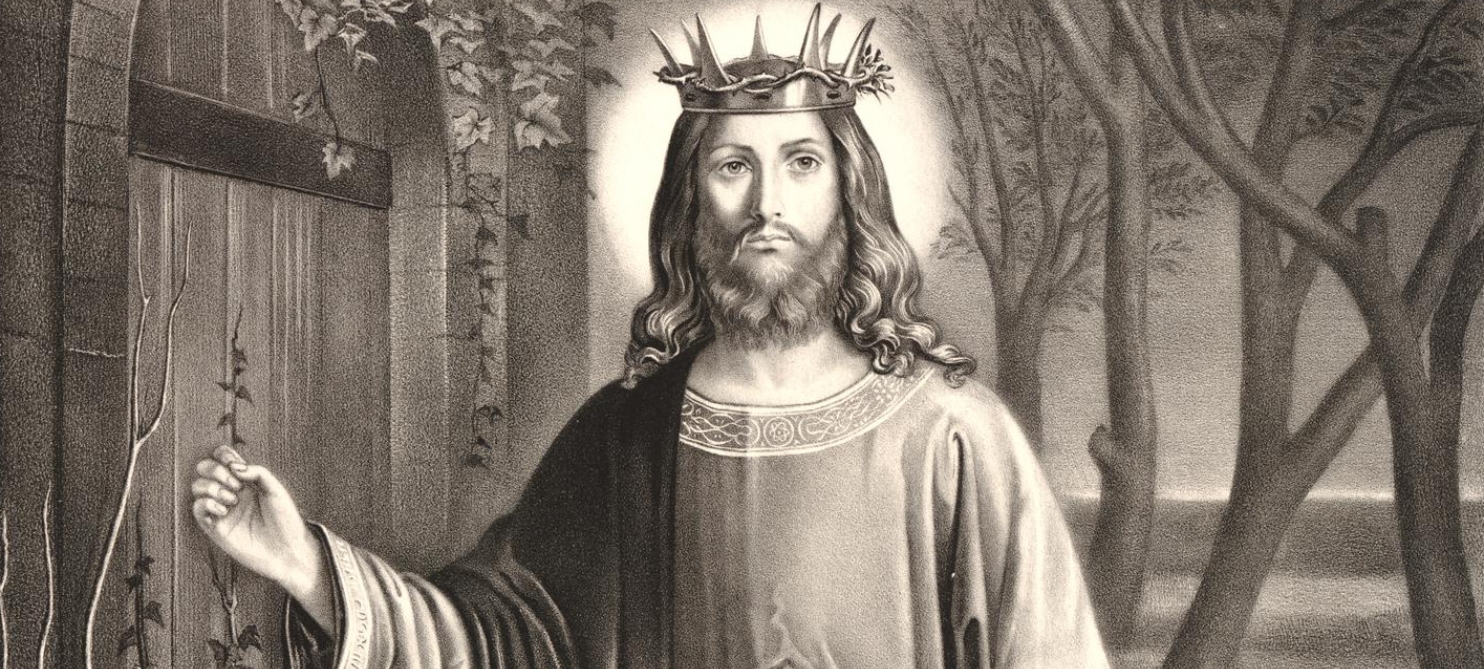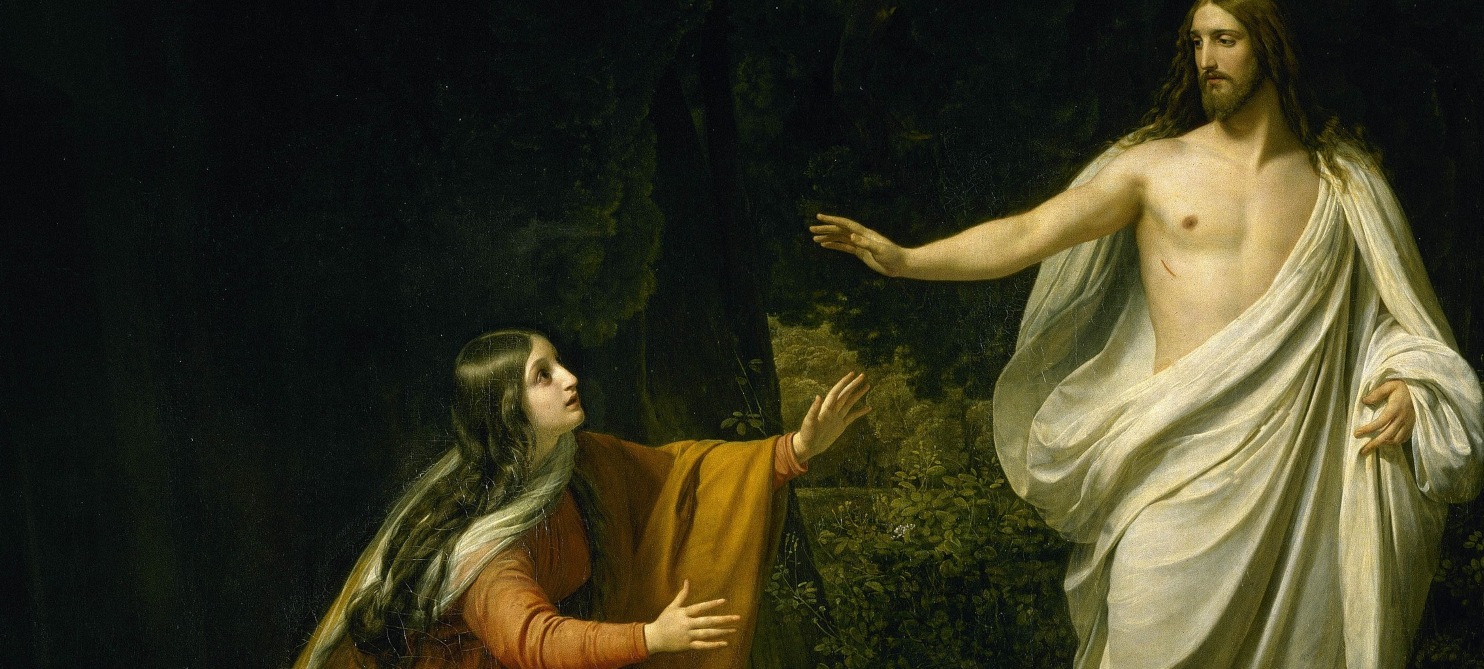A woman walks along a hot, dusty road. She is thirsty. Walking out from her town, up the hill to draw water again, is a drudgery. As she hears, “Give me a drink,” she focuses on the man before her, surprised to find anyone here at this time of the day. She questions how he can ask her for the drink. And He says:
If you knew the gift of God
and who is saying to you, ‘Give me a drink,’
you would have asked him
and he would have given you living water.[i]
In the story of the Samaritan woman at the well, we read of this beautiful encounter with Jesus. This is the reading used for the Third Sunday of Lent for the Mass with those planning to enter the Church at Easter.
Song of the Brightness of Water
Pope Saint John Paul II, before his pontificate, wrote a poem called Song of the Brightness of Water. This is a reading for reflection and meditation as we continue through Lent.
Looking into the well at Sichar
Look now at the silver scales in the water
where the depth trembles
like the retina of an eye recording an image
With the broad leaves’ reflection
touching your face
water washes tiredness around her eyes.
Still far from spring.
Tired eyes are the sign
that the night’s dark waters
flow through words into prayer.
(Consider how arid, arid are souls.)
The light from the well pulsates with tears:
a gust of dreams,
passers-by think, brought them down.
The well sparkles with leaves that leap
to your eyes. Reflected green
glints round your face
in the shimmering depth.
How far to the spring?
Multitudes tremble in you, transfixed
by the light of your words
as eyes by the brightness of water.
You know them in weariness. You know them in light.
Words spoken by the woman at the well, on departing
From this moment my ignorance
closes behind me like the door
through which you entered, recognizing
all I do not know.
And through me you led many people in silence,
many roads, and the turmoil of the streets.
The Samaritan woman
It joined us together, the well;
the well led me into you.
No one between us but light
deep in the well, the pupil of the eye
set in an orbit of stones.
Within your eyes, I,
drawn by the well,
am enclosed.
The Samaritan woman meditates
I–yes I–conscious then of my awakening
as a man in a stream, aware of his image,
is suddenly raised from the mirror and brought
to himself, holding his breath and amazement,
swaying over his light
I was raised–how, I do not know. Yet conscious
then of myself, myself before,
now divided–only by waking?
The wall opens. I often past through this wall
not knowing that it divided
me from myself.
Yes, I am raised. Everything seems as before:
The mules with their burdens
Slithering down the hill.
The world goes up, falls down
into houses carried through deep blue hair
(In vain, in vain).
Lamps light up again in the midst of awaited stars.
The burden inside that you took me–I will sense
slowly, and measure with weariness
through seasons of struggle, trying to bring out
a small particle of that simple harmony
which you possess without strain
beyond measure.
Straining you planted
a particle in me. But this I know:
the inner burden you took away
is not hung in the void.
Scales will never tell its weight
Or differentiate.
This undifferentiated state
I weigh and I am light again.
A flame rescued from dry wood
has no weight in its luminous flight
yet lifts the heavy lid of night.
Song of the brightness of water
From this depth–I came only to draw water
in the jug–so long ago, this brightness
still clings to my eyes–the perception I found,
and so much empty space, my own,
reflected in the well.
Yet it is good. I can never take all of you
into me. Stay than as a mirror in the well.
Leaves and flowers remain, and each astonished gaze
brings them down
to my eyes transfixed more by light
than by sorrow.[ii]
Let us pray with the Preface for the Mass for the disposition to ever be more open to receive the gift of faith. “For when he asked the Samaritan woman for water to drink, he had already created the gift of faith within her and so ardently did he thirst for her faith, that he kindled in her the fire of divine love.”[iii]
Want to read more?
For the third Sunday of Lent, the Office of Readings of the Liturgy of the Hours contains a magnificent reading from a treatise on John by Saint Augustine.[iv]
The one who was asking for a drink of water was thirsting for her faith
From a treatise on John by Saint Augustine, bishop
OR
Saint Augustine | Tractate 15 (John 4:1-42)
“Christus Und Die Samariterin Am Brunnen | Christ and the Samaritan Woman at the Well c. 1796.” WikiMedia Commons. Accessed March 7, 2021. https://commons.wikimedia.org/wiki/File:Angelika_Kauffmann_-_Christus_und_die_Samariterin_am_Brunnen_-1796.jpeg.
[i] John 4:10
[ii] Saint John Paul II. “Song of the Brightness of Water.” Essay. In Easter Vigil and Other Poems, translated by Jerzy Peterkiewicz, 9–15. Roma, Italia: Libreria Editrice Vaticana, 1979.
[iii] “Mass Propers for Lent: THIRD SUNDAY OF LENT: Preface: The Samaritan Woman.” Mass Propers for Lent. Accessed March 7, 2021. http://www.liturgies.net/Liturgies/Catholic/roman_missal/lentmass.htm#sunday3.
[iv] “Office of Readings | Third Sunday of Lent, Reading II: From a Treatise on John by St Augustine: A Samaritan Woman Came to Draw Water.” Universalis. Accessed March 7, 2021. https://universalis.com/readings.htm.
Third Sunday of Lent | Posted March 15, 2021


